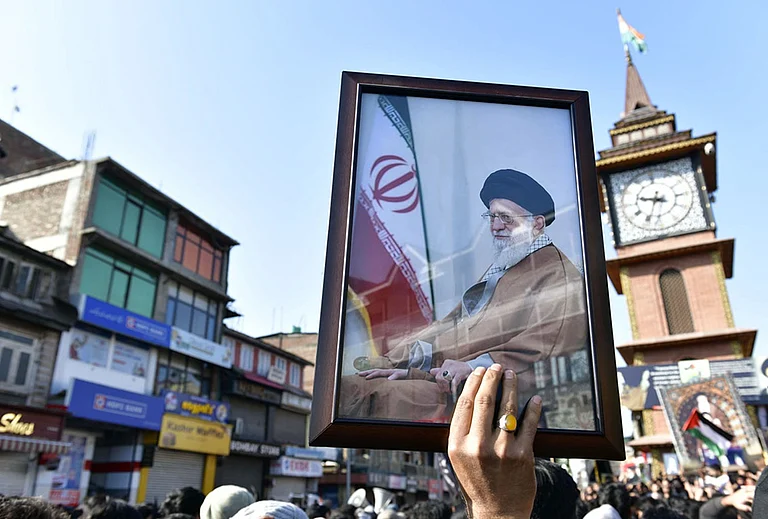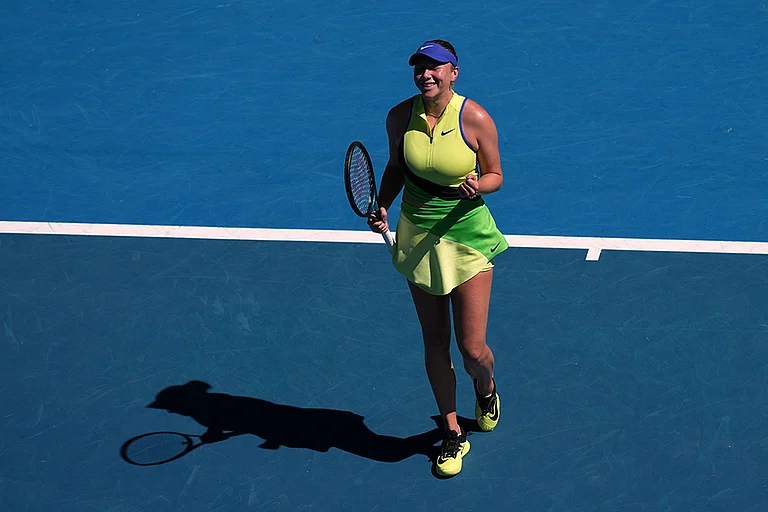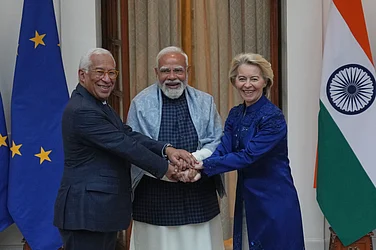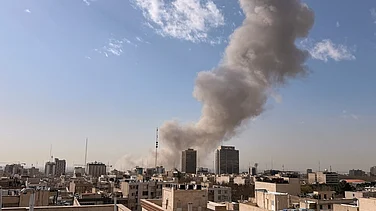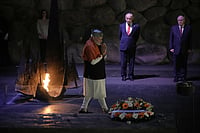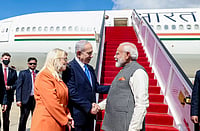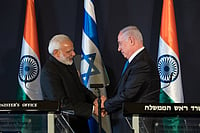India’s foreign minister Subramanyam Jaishankar and his Chinese counterpart Wang Yi, met in Astana where both were attending a meeting of the Shanghai Cooperation Organisation (SCO). Prime Minister Narendra Modi gave the SCO summit in Kazakhstan a miss as he is busy with the first session of the newly elected parliament.
Jaishankar and Wang have met several times since the India-China confrontation in the summer of 2020, yet they have not been able to break the ice. Both countries have amassed troops on either side of the border in Ladakh and bilateral ties continue to be strained.
"Met with CPC Politburo member and FM Wang Yi in Astana this morning. Discussed early resolution of remaining issues in border areas. Agreed to redouble efforts through diplomatic and military channels to that end. Respecting the LAC and ensuring peace and tranquility in the border areas is essential. The three mutuals – mutual respect, mutual sensitivity and mutual interest – will guide our bilateral ties," Jaishankar said on X.
The MEA read-out from the Astana meeting appears to be a slight improvement from previous statements since the stand-off. "The two Ministers agreed that the prolongation of the current situation in the border areas is not in the interest of either side," the MEA noted. It is anybody’s guess whether this will lead to further military de-escalation.
China is keen to normalise ties with India, but on its own terms. China has been pushing for business visas to be resumed by both countries. But New Delhi is in no mood to oblige, despite pressure from the Indian business lobby to relent and allow business travel between the two neighbours.
China wants the border transgressions to be dealt with by military commanders on the field and get resolved in its own time, while business and other engagements continue unhampered. But New Delhi has said from the start that it cannot be business as usual before the military stand-off in Ladakh is resolved.
Yet despite New Delhi’s assertion that it cannot be business as usual after Galwan and the banning of over 230 or so Chinese apps, the economic clout of China is such that India continues to trade with China. In fact, China has replaced the US as India’s largest trading partner with bilateral trade between the two Asian countries going up to USD 118.4 in the fiscal 2023-2024, according to the latest data from the Global Trade Research Initiative. The Modi government knows well that Chinese investments are needed to power Indian industry. Perhaps now with elections done and dusted there would be some attempt to repair ties with China and ensure stability in the neighbourhood.
"Both Ministers agreed to continue and step up meetings of the diplomatic and military officials of the two sides to take forward their discussions to resolve the remaining issues at the earliest. To that end, they agreed that the Working Mechanism on Consultation and Coordination on India-China Border Affairs (WMCC) should hold an early meeting," the MEA statement said. Yet meetings between military commanders and even top diplomats have so far not been able to break the gridlock.
Finally the matter will have to be resolved through political intervention at the highest level, meaning a meeting between Prime Minister Narendra Modi and President Xi Jinping. Whether Modi and Xi are willing to take that final step remains to be seen.
“Some movement on the China front may be expected in Modi’s third term,’’ says JNU’s China expert Alka Acharya. She thinks that pragmatism demands an easing of tension with China. While India is the fastest-growing global economy, growth has yet failed to generate enough jobs for India’s young population. This was a key election issue for the Opposition. Modi 3.0 will have to tackle the problem of jobless growth.
"The challenge is huge but India cannot be in a time warp," says Acharya. For economic growth, India, as all other countries, including the US, have to do business with China.
While Acharya is optimistic, others are not and believe India cannot trust China. "It has become quite clear that China is not willing to relent and step back from the LAC. Xi Jinping has not sent a message of Congratulations to PM Modi on his 3rd consecutive victory while he did so to both Shehbaz Sharif and Sheikh Hasina," says Ambassador Ashok Sajjanhar, who does not think that ties between the two Asian rivals is likely to improve in the near future.









